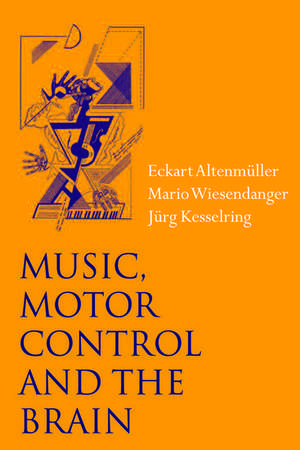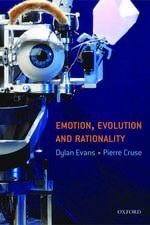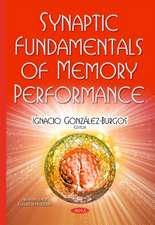Music, Motor Control and the Brain
Editat de Eckart Altenmüller, Mario Wiesendanger, Jurg Kesselringen Limba Engleză Hardback – 26 iul 2006
The motor actions that can be witnessed as a virtuoso musician performs can be so fast, so accomplished, so precise, as to seem somehow superhuman. The musician has to produce the movements, monitor those they have already made and the subsequent result, co-ordinate their hands, fingers, eyes, and perhaps throat and diaphragm. These achievements are of course the product of hundreds, even thousands of hours of practice - playing scales, studies, time and time again. But those hours of practice by no means guarantee that great musicianship will result. This technical prowess has to be combined with a range of other, perhaps, less tangible qualities.This book explores the secrets of musical virtuosity. It presents a comprehensive account of music and motor cognition, examining the neural basis of music making - our understanding of which is just starting to be enhanced by brain imaging. It considers the effect on our brains of prolonged music making. It explores the motor processes across a range of instruments (vocal, string, wind, percussion) and within different performance situations. It also considers what happens when things start to go wrong - why motor problems occur in so many professional musicians in later life, and the possible therapies for such problems.Music is a topic of considerable interest within the brain sciences. With contributions from leading psychologists, neuroscientists, and neurologists, this book makes a unique contribution to our understanding of music and the brain.
| Toate formatele și edițiile | Preț | Express |
|---|---|---|
| Paperback (1) | 588.82 lei 32-37 zile | |
| OUP OXFORD – 26 iul 2006 | 588.82 lei 32-37 zile | |
| Hardback (1) | 778.93 lei 32-37 zile | |
| OUP OXFORD – 26 iul 2006 | 778.93 lei 32-37 zile |
Preț: 778.93 lei
Preț vechi: 1177.18 lei
-34% Nou
Puncte Express: 1168
Preț estimativ în valută:
149.05€ • 159.38$ • 124.27£
149.05€ • 159.38$ • 124.27£
Carte tipărită la comandă
Livrare economică 07-12 aprilie
Preluare comenzi: 021 569.72.76
Specificații
ISBN-13: 9780198530008
ISBN-10: 0198530005
Pagini: 344
Ilustrații: numerous line drawings, graphs and halftones
Dimensiuni: 175 x 252 x 22 mm
Greutate: 0.81 kg
Editura: OUP OXFORD
Colecția OUP Oxford
Locul publicării:Oxford, United Kingdom
ISBN-10: 0198530005
Pagini: 344
Ilustrații: numerous line drawings, graphs and halftones
Dimensiuni: 175 x 252 x 22 mm
Greutate: 0.81 kg
Editura: OUP OXFORD
Colecția OUP Oxford
Locul publicării:Oxford, United Kingdom
Recenzii
...recommended without restrictions...highly enjoyable and valuable for researchers and students interested in the neurobiology of musical performance.
[It] displays a well-balanced account of contemporary neuroscience research into music performance and the role of disordered motor control. The book also shows that new scientific approaches to the study of music and the brain are just at a stage to gain first insights into the processing of elementary aspects of music.
[It] displays a well-balanced account of contemporary neuroscience research into music performance and the role of disordered motor control. The book also shows that new scientific approaches to the study of music and the brain are just at a stage to gain first insights into the processing of elementary aspects of music.
Notă biografică
After graduating in Medicine and Music Eckart Altenmüller held a postdoctoral position in the department of Clinical Neurophysiology in Freiburg where he carried out research into brain activation during auditory processing of music and learning of fine motor skills. He received his clinical training in Neurology at the Department of Neurology at the University of Tübingen (Head of the Department Prof. Dr. J. Dichgans). Since 1994 he is a chair and director of the Institute of Music Physiology and Musicians' Medicine. He continues research into movement disorders in musicians and into motor and sensory learning in musicians. In his outpatient clinic he sees 500 musicians a year, mostly suffering from movement disorders such as focal dystonia, focal tremor or from chronic pain syndromes. Currently 270 patients suffering from musicians' cramp are under his supervision. During the last ten years he received 20 grants from the German Research Society (DFG).

















